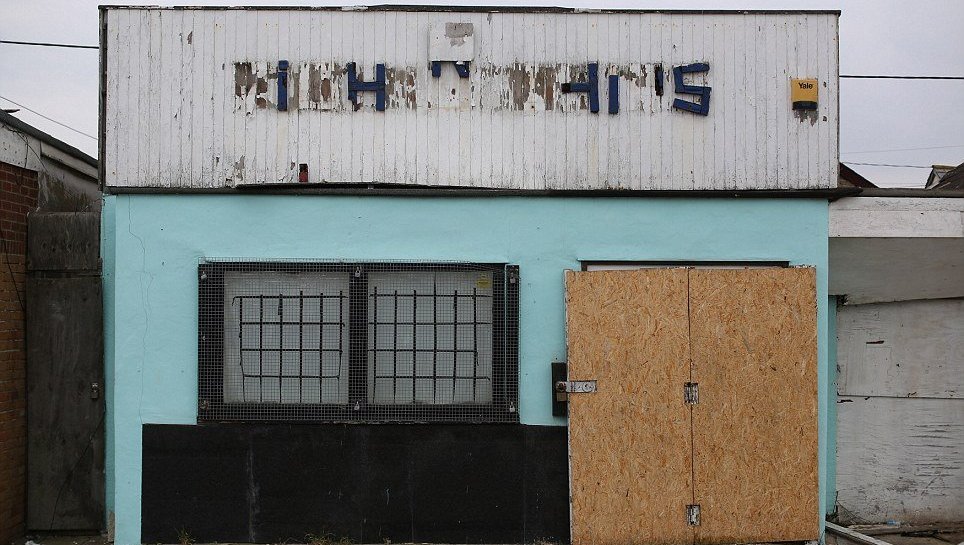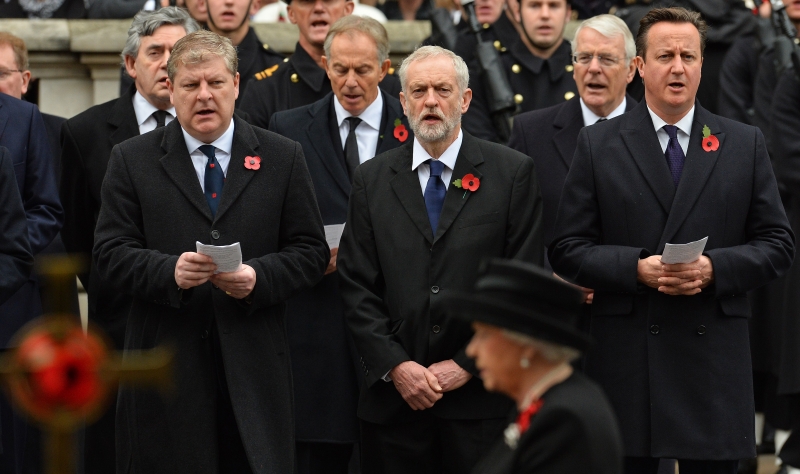The latest contribution to our series on the Labour Party is by Plan C members Camille Barbagallo, Nicholas Beuret, and David Harvie.
The working class isn’t winning, we are not in a position of strength. Just a few years ago this statement would be uncontroversial. But everything has apparently changed with Jeremy Corbyn’s rise, first to leader of the Labour Party in 2015 and, then, a few months ago, to the presumptive prime minister in waiting. In between, of course, we’ve witnessed the surge in Labour-Party membership, the formation of Momentum and a groundswell of self-organised activity oriented towards getting Labour candidates elected. Comrades have begun to speak of a change in fortunes, of things turning around. There is hope and, we are repeatedly told, that hope is to be found in the Labour Party.
We dissent from this view. We want to suggest that the turn towards a Labour Party campaigning on a social democratic manifesto isn’t a sign of increasing power for anti-capitalist social movements, but something that signals a profound crisis. Not only a weakness of the Left, or of radical social movements, or even of revolutionary groups like Plan C. More than this, it signals a serious crisis of our class. This electoral turn, like most electoral turns, is a sign of crisis of working-class power. Imagine for a moment that we had the power to truly transform the state and its complicity with capital… but then, why would we bother? If we have the power to transform the capitalist state, then we have no need to transform the state: we can simply transform society. The idea that we need the state to mediate our power is a sign of crisis in our capacity to act.
Historically, social democracy has relied on a series of conditions to be a viable compromise between capital and the working class. In a nutshell: these conditions no longer exist. Straight up: capitalism can no longer afford social democracy, our struggles against these conditions have made it unviable. The so-called golden age of capitalism – the two and a half post-WWII decades in which social democracy flourished – relied on women’s exclusion from the workforce and their isolation in the home. It was dependent on the continued existence of colonialism and neo-colonialism. It required constant economic expansion – allowing both profits and wages to grow – that is clearly insane in the face of systemic environmental breakdowns. It also needed the existence of a real alternative – so-called Communism – that meant capitalism’s existence could never be taken for granted. The women’s movement; anti-colonial, anti-imperial and anti-racist movements; environmental movements; a new generation of anti-work struggles (operating outside of more accommodationist trade unions); the collapse of ‘Communism’. The struggles of all of these subjects – and others – undermined social democracy’s basis
Given all this, it doesn’t seem heretical to ask why social democracy has returned as a vision of hope.
To begin with, it’s worth remembering that the social democracy currently inspiring so many comrades is really social democracy-lite. Labour’s 1983 election manifesto, for instance, included pledges to renationalise all the companies and enterprises privatised by the Thatcher governments, to take a ‘significant public stake in electronics, pharmaceuticals, health equipment and building materials’ and ‘other important sectors’ considered in the ‘national interest’. What Corbyn’s Labour is offering now seems radical primarily because of the great neoliberal shift over the preceding three decades and more.
It’s also worth noting that anti-capitalists’ ‘electoral turn’ is not unique to Britain. Many comrades who have become supporters of Corbyn’s Labour Party have been inspired by experiments in Spain and elsewhere. But Podemos and Barcelona en Comu were both new initiatives which emerged from social movements. Here in the UK the chain of events has been reversed: the ascendency of Corbyn and his circle in the Labour Party has been seen as the spark or even the magic bullet that can invigorate collective power.
We think the turn to the Labour Party is the result of three problems. These are not problems of any one organisation, nor of ‘the Left’ or anti-capitalist social movements. They are problems of our class. We must start then with the crisis (or crises) that our class faces – the crises of anti-capitalist social movements in general and Plan C in particular follow from this. Starting here, in the middle of this crisis of the class, suggests that these three problems help us to understand the recent turn to electoral politics.
We don’t know what to do or how to win
The first problem is that we don’t know what to do. We don’t know how to fight, organise and, most importantly, win against the political rationality that is neoliberalism. Everything we try to do seems to fail. At the level of the individual we don’t know what we should be doing or how to survive, let alone get ahead. Anti-capitalist social movements and Left organisations have been in crisis for a decade or more; old strategies and tactics don’t work any more; governments and corporations are seemingly immune to anything and everything that we throw at them. The turn to the Labour Party is an act of desperation: we don’t know how else we can change anything! Our crisis of faith in our own ability to transform the world means we turn instead to a saviour who can do it for us. The revolutionary project is reconceptualised as a strategy for gaining state power – or more precisely public office.
We can’t figure out how to overcome our isolation
Building organisations is hard. Building collective power is hard. No matter how many groups, collectives or projects we start, nothing seems to work like it should. After a decade of trying to rebuild social movements and our collective power, there doesn’t seem like much to show for it. Nothing seems to last, let alone expand and thrive. Not only this, but our everyday lives are getting lonelier, more anxious, increasingly desperate. We have less time and feel more alone. Our sense of despair and isolation is pervasive – where is everyone?
To be honest, even inside our organisations and groups it often feels less like a collective and more like a collection of people – a sack of potatoes. Creating and sustaining collectives is something that’s eluded us. The Labour Party offers an instant fix by giving us a ready-made organisation. It has all the formal trappings and sense of belonging, and we substitute these for a more substantial sense of collective power.
We want to give up
We aren’t winning. We can’t seem to make a dent on austerity. We can’t build our organisations or overcome our isolation. Add to this political isolation the constant anxiety and insecurity of life within neoliberalism. All this makes us want to give up, to find some easier way to changing the world within which we live. To not have to work so fucking hard all the fucking time.
Corbynism is, above all, a promise that the Labour Party – Corbyn himself even, along with his comrades John McDonnell and Diane Abbot and heir-apparent Clive Lewis – will sort it out for us. It’s true, we all need to do ‘our bit’: we must vote, of course, we must also canvass, spread the word, share memes on Facebook. But then we get to take a break. In short, we think the ‘electoral turn’ is a symptom of our own defeatism and our exhaustion. Partly we don’t know what else to do, we don’t know how to build our own power. But we’re also tired, we’re tired of struggling. Aligning with Corbyn and his project is one more way of taking a step back, alongside hopes for technological fixes to the crises of work and climate change.
Embracing our crisis
There is more to crisis than weakness and failure, however. Crisis also offers possibilities. Other routes and exits become possible, things become unsettled and open up. But we close down these possibilities if we reach out blindly for easy solutions. And it’s even worse if we wax nostalgic for solutions than were never much more than gains at the expense of others.
We don’t know what we need to do. But we do know that we won’t be able to figure this out, we won’t be able assemble, to overcome our own exhaustion with fantasies of fully automated luxury or by confusing public relations with politics. Headlines and column inches aren’t power. Access isn’t influence. Technofixes and algorithms won’t save us. It’s hard to stay with the messiness and confusion of this moment. But we gain nothing by looking up to saviours.





